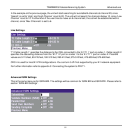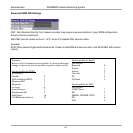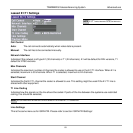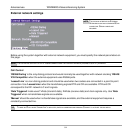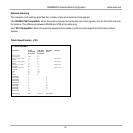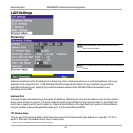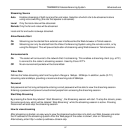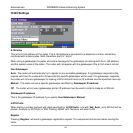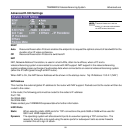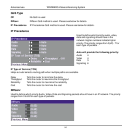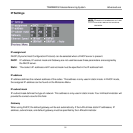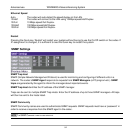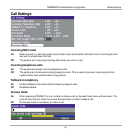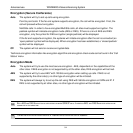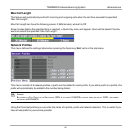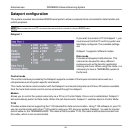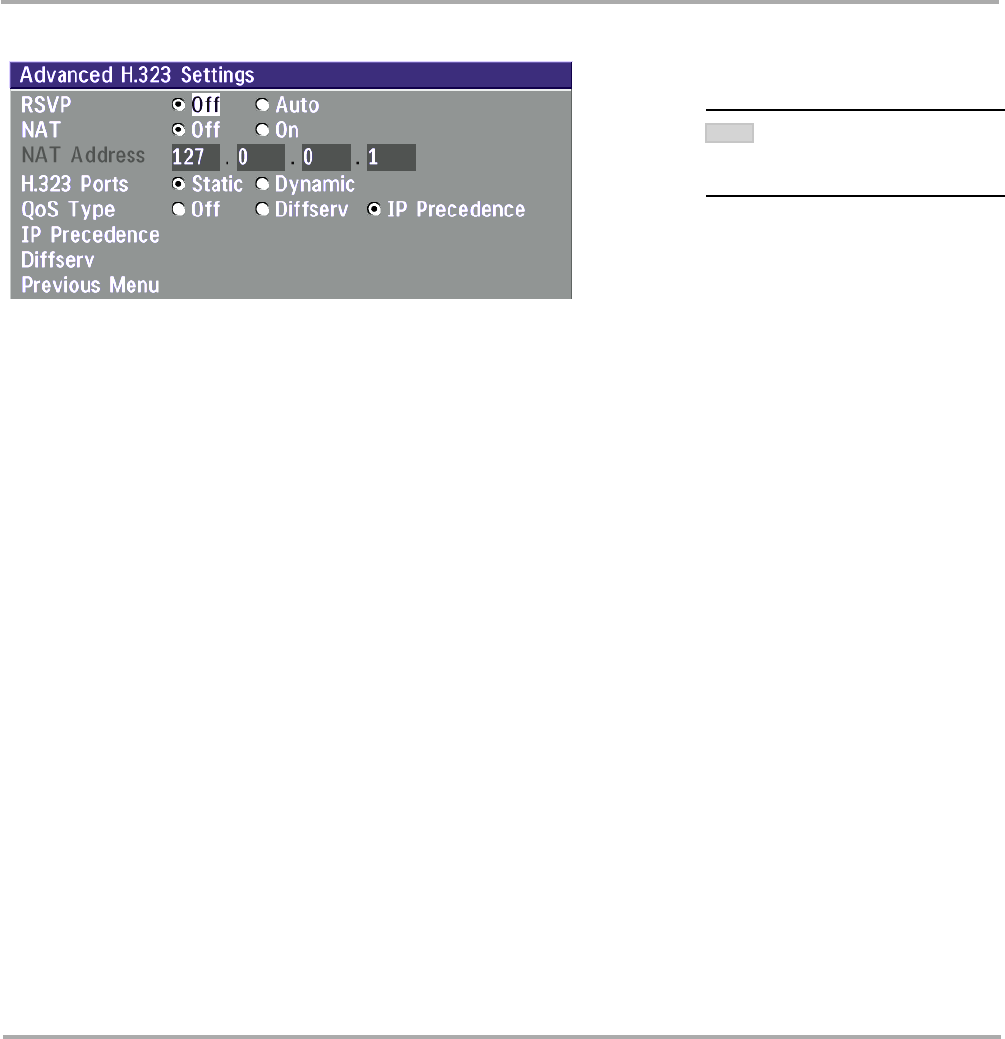
TANDBERG Videoconferencing System
89
Advanced use
Advanced H.323 Settings
THESE SETTINGS ONLY HAVE AN
EFFECT
IF THEY ARE SUPPORTED BY
YOUR IP INFRA STRUCTURE.
NOTE
RSVP
Auto Resource Reservation Protocol enables the endpoints to request the optimal amount of bandwidth for the
duration of an IP video conference.
Off Resource Reservation Protocol is switched off.
NAT
NAT, Network Address Translation, is used in small LAN’s, often home offices, when a PC and a
videoconferencing system is connected to a router with NAT support. NAT support in the videoconferencing
system enables proper exchange of audio/video data when connected to an external videoconferencing system
(when the IP traffic goes through an NAT router).
When NAT is On, the NAT Server Address will be shown in the startup-menu: ‘My IP Address: 10.0.2.1 (NAT)’
NAT Address
This must be the external/global IP-address to the router with NAT support. Packets sent to the router will then be
routed to the codec.
In the router, the following ports must be routed to the codec’s IP-address:
Port 1720
Port 5555-5560
Port 2326-2365
Please contact your TANDBERG representative for further information.
H.323 Ports
Static When selecting static H323 ports for TCP connections the ports 5555 or 5556 will be used for
Q931 and H245 respectively.
Dynamic The operating system will allocate which ports to use when opening a TCP connection.. The
reason for doing this is to avoid using the same ports for subsequent calls as some firewalls
consider this as a sign of attack.



